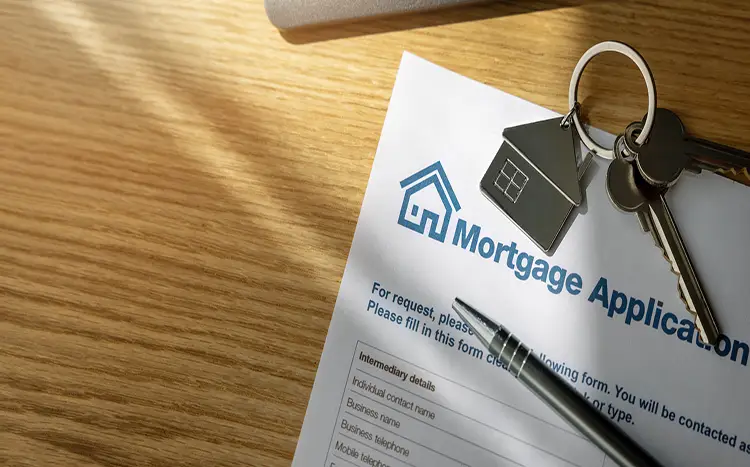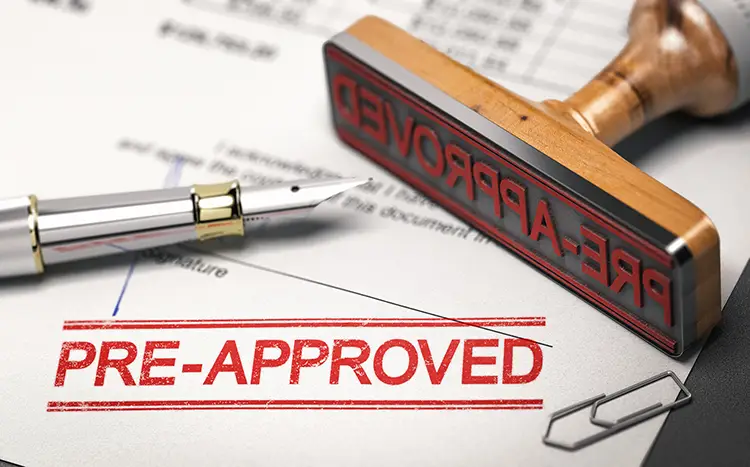How to Buy a Home on One Income
Published on August 7, 2024 | 7 Minute read

Melanie
Ortiz Reyes
Content Specialist
For those trying to buy a home on a single income, the process may seem incredibly daunting. However, with careful planning, strategic budgeting, and the right resources, it's entirely possible to do so.

Assessing Your Financial Situation
Before embarking on the home-buying process, you'll need to have a clear understanding of your financial situation. Here are some key steps to take:
1. Evaluate Your Income and Expenses
Start by taking a detailed look at your income and monthly expenses. This includes your salary, any additional income sources, and all your regular expenditures such as rent, utilities, groceries, transportation, and debt payments. This assessment will help you understand how much you can afford to spend on a mortgage each month.
2. Check Your Credit Score
Your credit score plays a significant role in determining your eligibility for a mortgage and the interest rates you'll be offered. Obtain a copy of your credit report from the major credit bureaus and review it for any inaccuracies or issues that need to be addressed. Aim to improve your credit score if necessary by paying down debts and ensuring all bills are paid on time.
3. Save for a Down Payment
A down payment is a crucial component of the home-buying process. While the traditional down payment amount is 20% of the home's purchase price, there are various loan programs that require lower down payments. Research your options and start saving as early as possible to ensure you have enough funds when you're ready to buy.

Budgeting and Saving Strategies
Living on a single income means being extra diligent with your budgeting and saving efforts. Here are some strategies to help you stay on track:
1. Create a Detailed Budget
Develop a comprehensive budget that outlines your monthly income, fixed expenses, and variable expenses. Allocate a portion of your income to savings for your down payment, closing costs, and moving expenses. Use budgeting apps or spreadsheets to track your spending and ensure you stay within your limits.
2. Cut Unnecessary Expenses
Identify areas where you can cut back on spending to boost your savings. This could include dining out less, canceling unused subscriptions, or finding more cost-effective alternatives for everyday expenses. Small changes can add up over time and make a significant difference in your savings.
3. Build an Emergency Fund
Having an emergency fund is highly important, especially when you're relying on a single income. Aim to save at least three to six months' worth of living expenses in a separate account. This fund will provide a safety net in case of unexpected financial challenges during the home-buying process.
4. Automate Your Savings
Set up automatic transfers from your checking account to your savings account each month. This ensures that you consistently save a portion of your income without having to think about it. Treat your savings contributions as a non-negotiable expense, just like rent or utilities.

Exploring Mortgage Options
When buying a home on one income, it's important to explore various mortgage options to find the one that best suits your financial situation. Here are some options to consider:
1. FHA Loans
The Federal Housing Administration (FHA) offers loans with lower down payment requirements and more flexible credit score criteria. This can be a good option for single-income buyers who may not have a large down payment saved up.
2. VA Loans
If you are a veteran or active-duty service member, you may qualify for a VA loan. VA loans offer benefits such as no down payment requirements and competitive interest rates, making homeownership more accessible.
3. USDA Loans
The United States Department of Agriculture (USDA) provides loans for rural and suburban homebuyers with low to moderate incomes. These loans often come with low or no down payment requirements and favorable interest rates.
4. Conventional Loans
Conventional loans are another option to consider. While they typically require higher credit scores and larger down payments, they can offer competitive interest rates and terms for qualified buyers. Research different lenders and loan programs to find the best fit for your situation.

Getting Pre-Approved for a Mortgage
Once you have a clear understanding of your budget and have explored different mortgage options, the next step is to get pre-approved for a mortgage. Here’s why this step is important and how to go about it:
1. Why Pre-Approval Matters
Getting pre-approved for a mortgage shows sellers that you are a serious and qualified buyer. It also gives you a clear idea of how much you can afford to borrow, which helps you narrow down your home search to properties within your price range.
2. How to Get Pre-Approved
To get pre-approved, you'll need to provide your lender with detailed financial information, including your income, assets, debts, and credit history. The lender will review this information and determine how much they are willing to lend you. This process typically involves filling out an application and submitting supporting documents.

Finding the Right Home
Finding the right home involves more than just looking at properties within your budget. Here are some tips to help you find a home that meets your needs and fits your financial situation:
1. Determine Your Needs and Wants
Make a list of your must-haves and nice-to-haves in a home. Consider factors such as location, size, layout, and proximity to work, schools, and amenities. Having a clear understanding of your priorities will help you stay focused during your home search.
2. Work with a Real Estate Agent
A knowledgeable real estate agent can be an invaluable resource when buying a home on one income. They can help you find properties that meet your criteria, negotiate offers, and navigate the home-buying process. Look for an agent with experience in your desired area and a track record of working with single-income buyers.
3. Consider Fixer-Uppers
If you're open to it, consider looking at fixer-upper properties. These homes may be priced lower than move-in-ready homes, allowing you to buy in a desirable area for less. Be sure to budget for renovation costs and consider whether you have the time and resources to take on a renovation project.

Making an Offer and Closing the Deal
Once you find the right home, it's time to make an offer and go through the closing process. Here are the steps involved:
1. Making an Offer
Work with your real estate agent to make a competitive offer on the home. Your agent will help you determine a fair price based on comparable sales in the area and the home's condition. Be prepared to negotiate with the seller to reach an agreement.
2. Home Inspection
After your offer is accepted, schedule a home inspection to ensure there are no major issues with the property. If the inspection reveals significant problems, you may be able to negotiate repairs or a price reduction with the seller.
3. Appraisal and Final Approval
Your lender will require an appraisal to determine the home's market value. If the appraisal comes in lower than the purchase price, you may need to renegotiate with the seller or come up with additional funds. Once the appraisal is complete and all conditions are met, your lender will give final approval for the mortgage.
4. Closing
The closing process involves signing all necessary documents and paying closing costs, which can include lender fees, title insurance, and property taxes. Review the closing disclosure provided by your lender to understand all costs involved. Once everything is signed and payments are made, you'll receive the keys to your new home.
Buying a home on one income may present challenges, but with careful planning, disciplined budgeting, and the right resources, it is entirely achievable. Remember to stay focused on your long-term financial goals, maintain an emergency fund, and budget for ongoing expenses to ensure a smooth transition to homeownership. With determination and strategic planning, you can achieve the dream of owning a home on a single income and enjoy the stability and pride that comes with it.